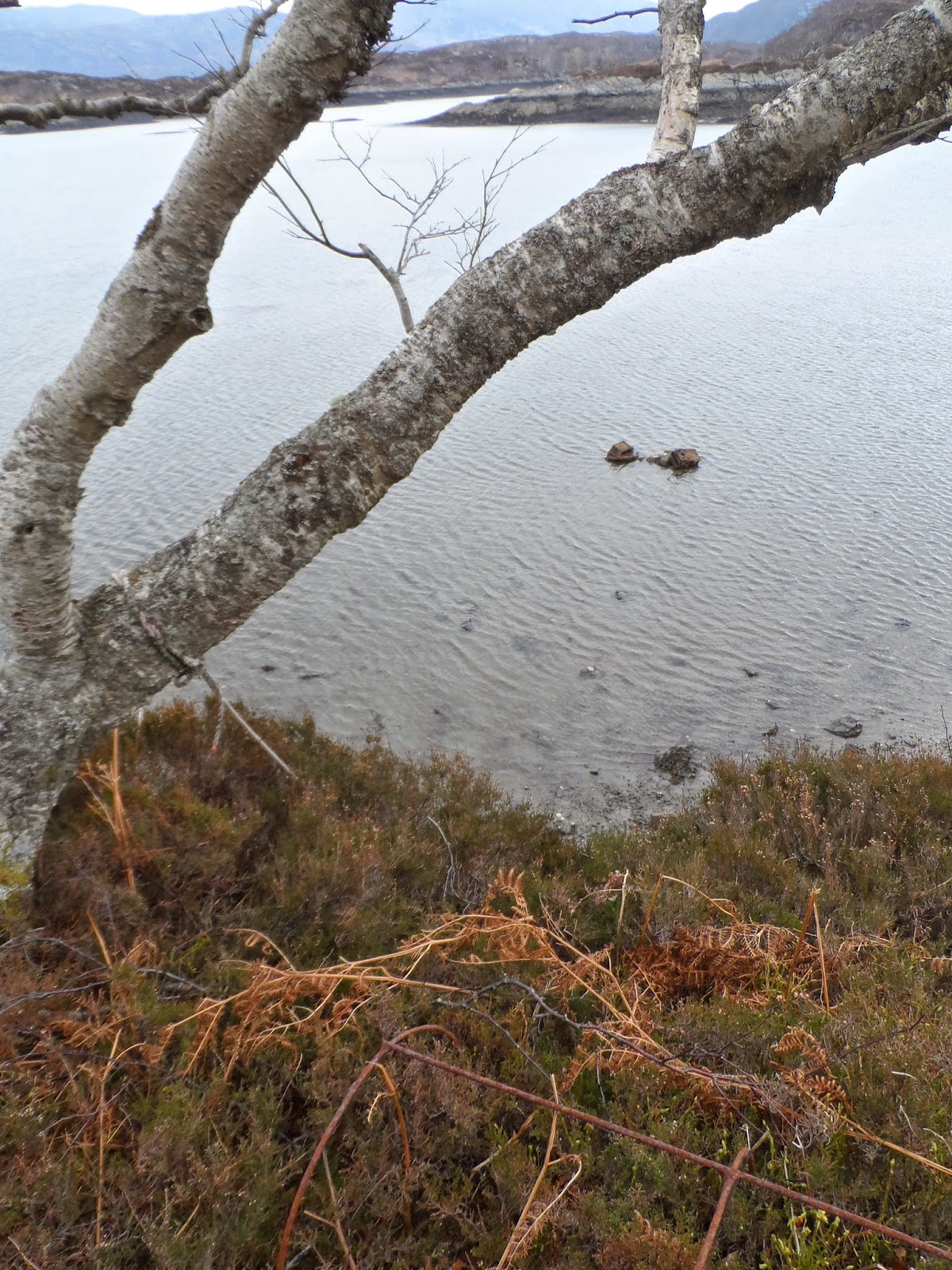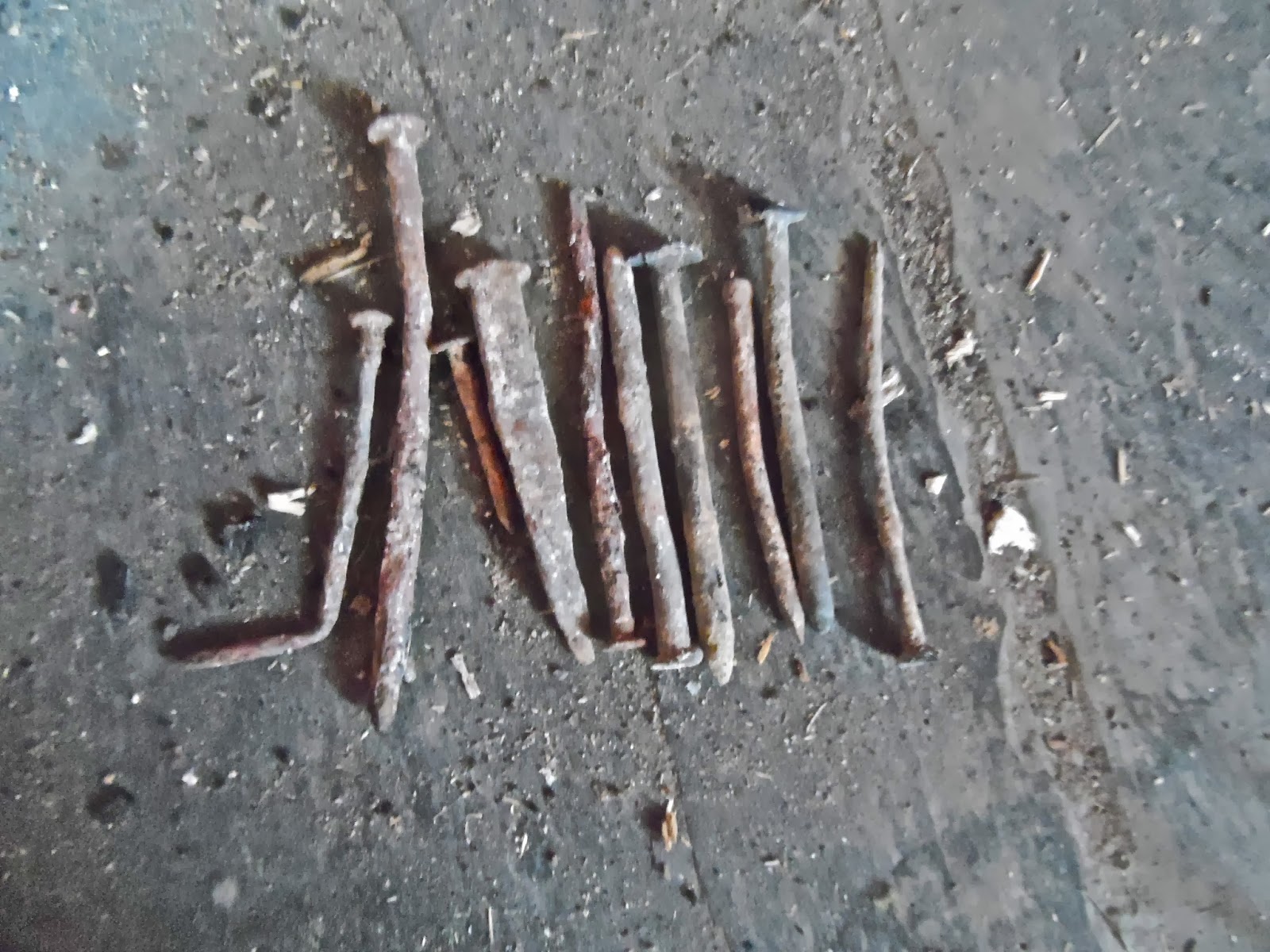Finally the west coast is starting to dry out and I've had the chance to try out my, slightly alarming, graphic scheme for the hall flooring. The hall floorboards were replaced haphazardly with silicon to fill the gaps and they've proved impossible to clean. The cheapest option to cover them was hardboard so I took the opportunity to try out a comic-book option with the idea that it can always be painted over if it gets too much. It was already getting a bit much outside.

There was a rush to get this finished before the arrival of my sister, her boyfriend and her two wee boys. I had intended being in Glasgow whilst they were in residence but the combination of gardening (planting of potatoes and seedlings that were getting too big for the propagators) and the inaugural curry night at the village hall meant that I headed up for what was meant to be the first couple of nights of their stay. Alas the diesel generator was still recovering from its October reassembling (the guide tube seals had been replaced wrongly so it was leaking oil badly) so gardening was delayed whilst C and I wrestled with mucky manifolds. This meant I had to stay an extra couple of days finishing up with some frantic weeding and planting: purple-sprouting broccoli and brokali (cross between chinese and european varieties) seedlings planted out; courgette seedlings planted and protected; carrot, beetroot and parsnip sown; rocket, lamb's lettuce and mustard sown; fertiliser applied.
However the extra time gave me the opportunity to discover that my sister's boyfriend is not just incompetent but pretty horrid as well. This time he wasn't able to dig up my herbs and scatter seaweed in the wrong places and he was limited in what he could do to help C who found boyfriend's attempt to apply PTFE tape excruciating to witness.
Instead he devoted his time to riding roughshod over our culture. He announced the first night that he and his sons had decided C's new numberplate stood for "Horrible Grumpy Man". He then repeated this a couple of times daily including using it instead of C's name whilst singing 'Happy Birthday' until I suggested that C was getting depressed (poorly diesel generators and incompetent son-in-laws will do that to a man) and that this repetition wasn't helping. The boyfriend's use of the passive voice whilst pompously informing his seven-year old son not to use the line didn't fool anybody. On his second night he insisted on repeating a rubbish joke ("Did you hear the joke about the Haggis? it's offal!") several times despite C and I protesting each time that we found the boyfriend's Scottish accent offensive and distracting and that telling the joke again wasn't helping. The boyfriend went to Eton. It shows. Since he can barely pick up direct requests to stop saying stuff it was hoping too much that he might pick up the following indirect request.
In front of Drumbuidhe there is a small peninsula at the very end of which we used to moor our boat. This is known to use as 'the point' since it's the only one we can see from the house. The full name given on the OS map is the gaelic
rubha na oitir which refers to the shallow bay (it dries out fully at low tide) it encloses but can also be taken as meaning 'the point'. Alas the boyfriend has heard this as 'otter point' and despite the fact that none of our family, or previous inhabitants of Drumbuidhe, or maps of this area mention this name, he has decided to use it to demonstrate his familiarity with the area and his bond with nature. I pointed out that the name of the point was
oitir as in 'shallows' in the native language rather than
otter as in 'recently-sentimentalised-mammal' in a foreign language but to no avail. He kept using 'otter point' and I kept feeling a rustle as the people of Morvern shifted in their graves.
Crikey he was relentless: The fresh wild garlic makes for great fritattas (aka spanish omlette or tortilla). As I served this the boyfriend gave a wee lecture to his sons about how I could cook this because I'd spent time in Spain. Needless to say this is rubbish - I didn't have to go to Seville to recognise good food. It was delicious as I'm sure the many Glaswegians of Italian descent would have agreed.
Wild Garlic Fritatta
(serves four adults and two children)
generous slug of oil
3 leeks - sliced
10 cherry tomatoes cut into quarters
8 medium potatoes cooked, peeled and chopped into chunks
6 eggs
grated cheese
large handful wild garlic, chopped fine
salt and pepper
* heat the oil in the largest all-metal frying pan you have
* fry the leeks over a moderate heat 'til they've just started to brown
* add the tomatoes and potatoes and fry for a couple of minutes
* mix the eggs with the grated cheese, wild garlic, salt and pepper
* pour the egg mixture into the frying pan, moving the vegetables gently aside so the egg mixture is evenly distributed but taking care not to scramble it
* turn the grill up to maximum and put the pan under the grill to cook the top of the mixture (I have to do a bit of twisting and turning to get the top evenly cooked)
* if you're serving to children, check that it's cooked through
* slice and serve
This recipe includes the vegetables I had available and my personal inclinations (I do like the alium and tomato mixture). I've yet to try the emergency version which uses crisps instead of cooked potatoes.
 Looking after N (and Christmas) has meant a pause in job-hunting but there were some decent interviews at the end of the year including an atmospheric trip to Dunoon and emergency trouser purchases for an interview in Glasgow's old BBC building. Alas none of them resulted in the offer of a lucrative full-time position but I have strong hopes for a possible job in Fort William in the New Year.
Looking after N (and Christmas) has meant a pause in job-hunting but there were some decent interviews at the end of the year including an atmospheric trip to Dunoon and emergency trouser purchases for an interview in Glasgow's old BBC building. Alas none of them resulted in the offer of a lucrative full-time position but I have strong hopes for a possible job in Fort William in the New Year.











